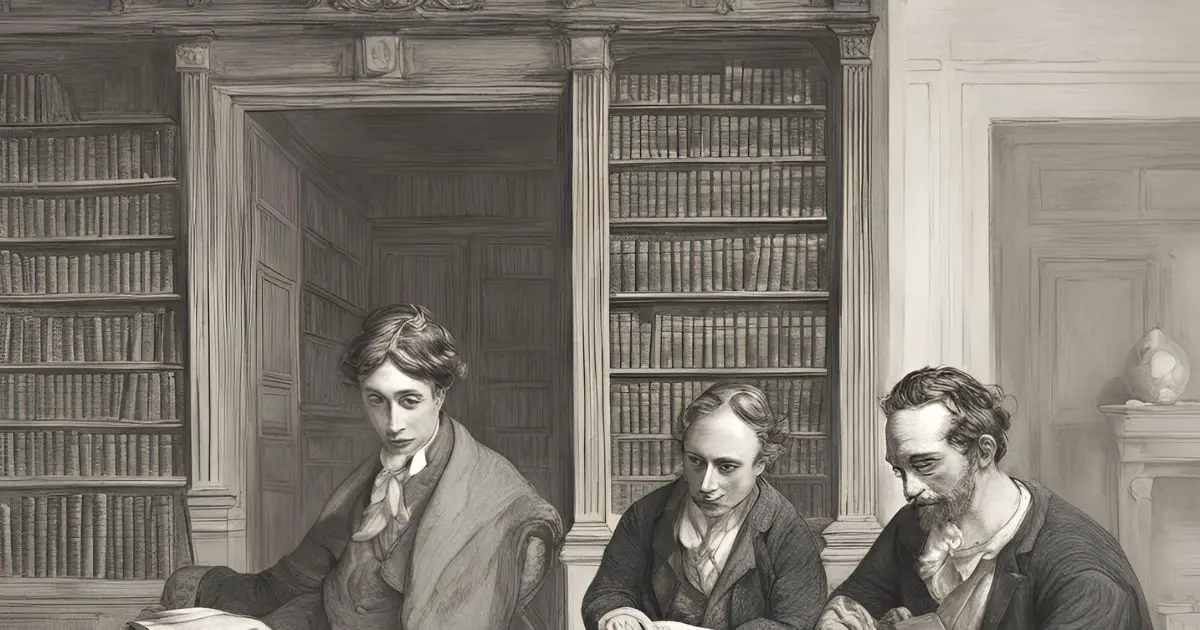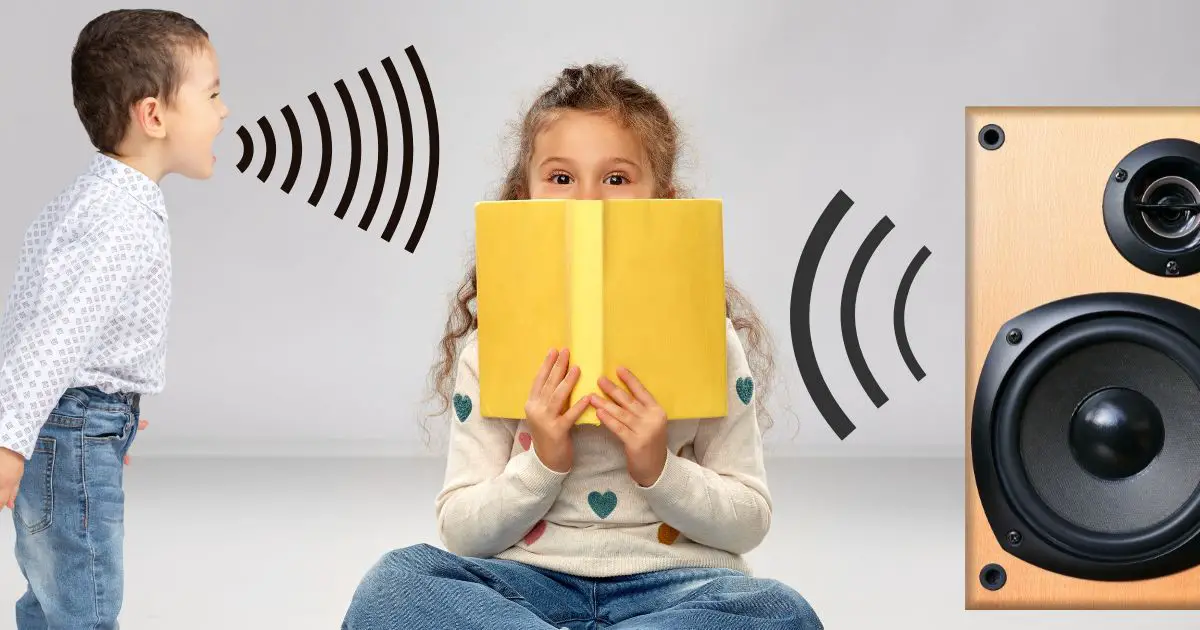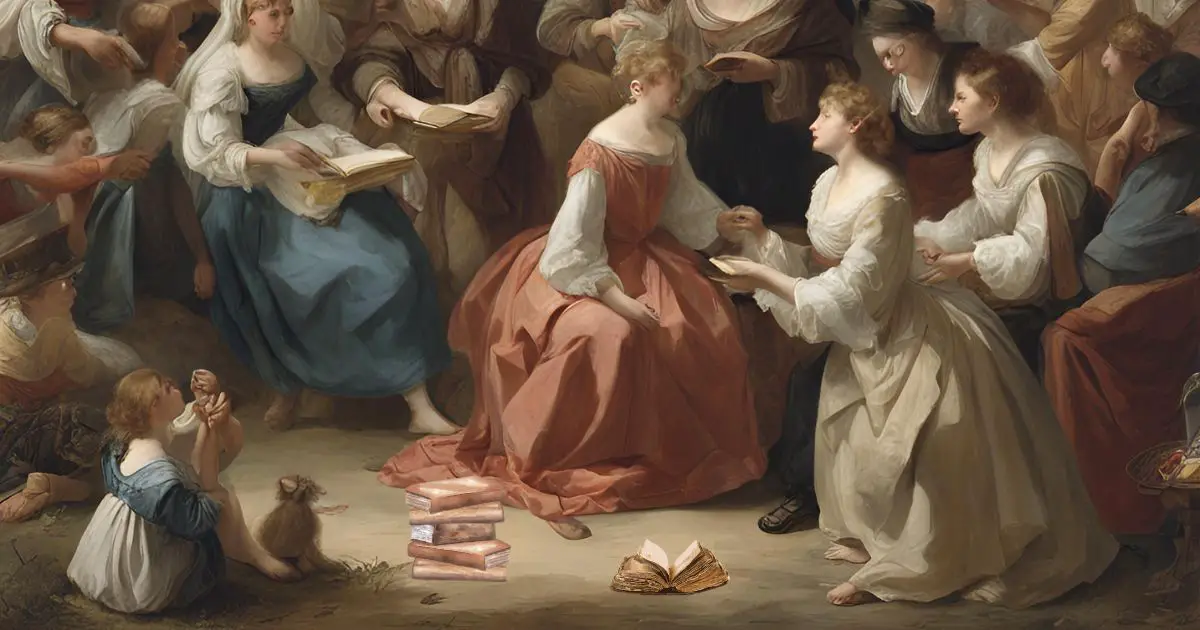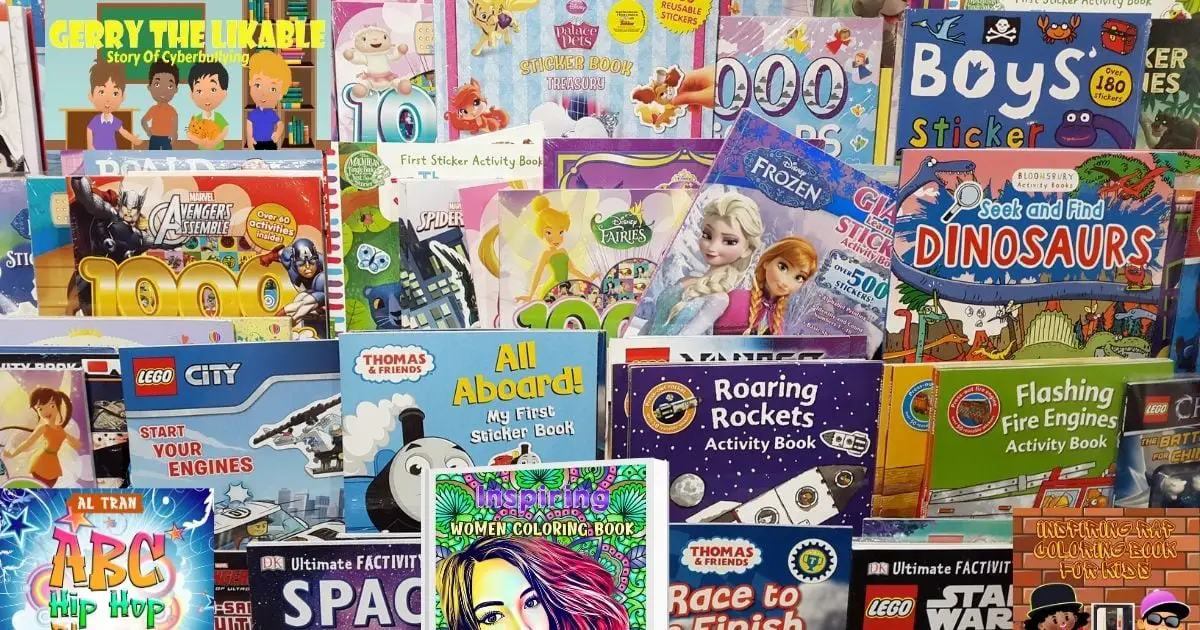Exploring literature with friends can be a rewarding experience. Let’s open the door to learning insights and deeper discussions.
Explaining literature issues with peers while reading is a learning trip that not only makes our knowledge stronger but also builds important relationships. When we study literature together, it starts an experience of shared learning, allowing us to elucidate literary themes and ideas that might be difficult to understand on our own. This could make us grow personally and see more deeply into what it means to be human.
Power of Shared Reading for Elucidate Literary Topics
In a life filled with personal and life problems, literature can offer comfort and motivation. While we try to understand the complexities of our existence, reading turns into a place of safety, an entry point to fresh viewpoints, feelings, and thoughts. But can we increase the benefits by talking about what we have read with others? In this article, we explore the skill of talking about literary subjects with others. It gives us ideas and methods for making our reading better and building connections as we do so.
1. The Collaborative Nature of Reading

Understanding the Dynamics of Group Reading
Participating in group reading sessions provides a special chance to analyze literary works together. As we express our understandings, inquiries, and notices, we utilize the combined knowledge of the group to gain new viewpoints or ideas that might not have been noticed by us individually. This team-oriented method doesn’t just enhance our comprehension of the text but also encourages feelings of friendship and common interest among participants.
Building Empathy Through Shared Experiences
Reading with peers allows a person to understand many different views and experiences. When we go through the details of stories and characters, it is natural for us to relate them to our own lives and difficulties. Talking about these connections helps in developing an understanding of complex human situations, promoting empathy towards others.
Enhancing Critical Thinking Skills
Talking with other people who study literature helps us to think critically and analyze. When we express our thoughts, protect our understandings, and interact with different opinions, it enhances our capability to examine and evaluate complex texts. This cooperative method pushes us not only to consider basic explanations but also to explore more deeply the hidden concepts, symbols, and recurring elements found within the text.
2. Strategies for Effective Peer Discussions

Establishing a Supportive Environment
To have a discussion that is useful between peers, it’s very important to make an environment of support and inclusiveness. You can do this by promoting open-mindedness, active listening, and mutual honor among the people taking part in the conversation. Underline that different viewpoints are valuable and guarantee that everyone feels at ease to share their ideas without being afraid of criticism.
Set Goals and Rules for Discussion
Before starting discussions, make sure you have set clear objectives and guidelines. This helps to keep the conversation on track and productive. You can define the range of discussion, establish rules for polite communication, and motivate those participating in the discussion to be equipped with particular sections or queries that guide the conversation.
Fostering Active Participation
Ask questions that require thinking, inspire deeper thoughts, and encourage those not speaking up to share their viewpoints. Give chances for everyone to be involved in the conversation with their words, written reflections, or creativity.
3. Leveraging Technology for Virtual Book Clubs

Harnessing the Power of Online Platforms
In the growing digital era, virtual book clubs present a handy and reachable method to link with colleagues and participate in literature discussions from your dwelling place. Investigate different online places like Goodreads, Reddit, or Facebook groups that are specially made for book clubs to discover readers who share similar interests as well as broaden your knowledge about books.
Utilizing Video Conferencing Tools
Use platforms that have a variety of tools for hosting virtual book club meetings and live discussions, like Zoom, Google Meet, or Microsoft Teams. Utilize features such as screen sharing, breakout rooms, and chat functions to boost the interaction and involvement in your virtual gatherings.
Embracing Asynchronous Communication
For people who are very busy or live in different time areas, using communication tools that don’t need real-time interaction, such as email threads, discussion boards, or messaging applications can be a good choice. You could also motivate ongoing conversation and thought-sharing outside of planned gatherings.
4. Nurturing Creativity and Imagination

Stimulating Creativity Through Literary Exploration
Speaking with friends about literary subjects can inspire our creative thinking and imagination in unforeseen manners. While we dissect the reasons behind character actions, unexpected changes in storyline, and how a narrative is structured, it makes us think creatively to picture alternative situations and results. When we push ourselves to imagine beyond what’s typical or anticipated, we improve our ability for creative thought. This leads us towards fresh viewpoints that enhance the experience of reading books.
Exploring Symbolism and Metaphor
Digging into the symbols and metaphoric parts of a text can help us understand its theme wealth and artistic quality better. When we talk with others, we might find out more about what’s underneath the story’s surface, that is, why certain symbols, images, or allegorical parts keep appearing. This search for understanding improves our knowledge of the text while also creating stronger ties to its hidden messages and themes.
Unleashing the Power of Imagination
Reading with friends allows us to enter an environment full of imagination and potential. As we dive into the worlds created by authors, our minds travel to settings different from our reality – places where everything can happen. By talking together about what we read and thinking over it, we push the limits of our imagination to think about new worlds, characters, and stories that capture interest while also encouraging creativity.
5. Cultivating Empathy and Emotional Intelligence

Empathy Through Character Analysis
Understanding the reasons, difficulties, and successes of literary characters helps to show what it means to be human. When we feel for the happiness and sadness of these story people, we get a better comprehension of their points of view and drives. This lets us connect with their difficulties at an intimate level. Talking about how stories impact our feelings with friends in a team setting gives us an understanding of the intricacies of human emotions and connections, developing empathy not only for those on paper but also for others outside it.
Exploring Diverse Perspectives
In literature, many types of voices and viewpoints help us to understand characters from various backgrounds, cultures, and ways of life. When we talk with other students who have different experiences than our own, it expands what we know about the world around us, not just in terms of facts but also by questioning assumptions or prejudices. We can see different views on the same topics through literature. When we read a book or story from an author who has a unique voice and perspective, it helps us to understand more about life in general.
Fostering Emotional Resilience
Steering through the emotional scenes of literary pieces can assist us in constructing emotional strength and tactics for handling difficulties. As we dig into subjects like resilience, persistence, and redemption via group talks with friends, we gather useful thoughts and motivation to deal with our problems better. When we share our views and discuss kindly, it makes us feel comforted by the stories of imaginary people. This gives us the power to confront troubles bravely in real life as well.
6. Strengthening Communication and Interpersonal Skills

Practicing Articulation and Expression
Talking with friends about literature is a good way to improve how we express our thoughts and ideas clearly. When we join in group talks, we become better at communicating by learning how to explain complicated topics or detailed understandings in an organized and persuasive way. Because of helpful comments and conversation, people can improve their skills in talking or writing effectively. This makes them feel more sure of themselves and better at dealing with others.
Building Active Listening Skills
A good conversation needs clear expression and active listening too. When we discuss with other students, it helps us to improve our listening skills. We listen carefully and understand the different ideas and thoughts that they share. When we show active listening, asking questions for clearness, saying again main ideas in our own words, or understanding different opinions. It shows respect towards others’ views and feelings. This way, it encourages a culture of open conversation between peers while building up mutual comprehension at the same time.
Cultivating Empathetic Communication
Empathy can be seen as the central part of communication that is understanding and compassion, allowing us to connect genuinely with people and handle conflicts in a way that shows grace plus comprehension. In a collaborative talk about literary matters, we develop skills for empathetic communication by studying diverse opinions, appreciating others’ experiences, and speaking with awareness and compassion. By promoting empathy and understanding in our conversations with fellow students, we create more robust relationships built on trustworthiness, respectfulness, and supportiveness.
7. Enhancing Cognitive Flexibility and Problem-Solving Skills

Fostering Cognitive Flexibility Through Literary Analysis
When we closely study intricate literary texts with classmates, it pushes us to think in a critical, creative, and flexible manner. As we struggle with various explanations and views about the text, engaging in discussions that delve into different perspectives, contradictory understandings and questions without clear answers helps develop cognitive flexibility. This term means being able to adjust our thinking process and ways of finding solutions based on fresh details or situations that change over time. Being open-minded helps us understand literature better, but it also gives us important abilities for dealing with life’s difficulties: being strong and adaptable.
Stimulating Intellectual Curiosity and Inquiry
The search for knowledge is an ongoing process driven by curiosity and questioning. Conversations about literary matters with friends stimulate our aching curiosity, leading us to ask deeper questions, look for fresh viewpoints, and explore further understanding of the texts we come across. By accepting an attitude of inquiry and investigation, we grow a desire for knowledge and uncovering that goes beyond what’s written in books – it spreads into our lives with feelings like fascination, inquisitiveness as well as endless potentiality.
Applying Literary Analysis to Real-world Problems
The ability to analyze and think critically, developed in the study of literature, is a key method for approaching problems and difficulties in the world. When we use methods from literary analysis like careful reading, understanding text meanings, and making arguments based on evidence to look into present-day matters or dilemmas, such as social injustices or climate change, we discover new viewpoints and creative answers that go beyond subject limits.
In cooperative talks with fellow students, we use literature’s strength to shed light on complicated social, political, and moral problems. This equips us with abilities to bring positive alterations and offer significant inputs within our communities as well as wider society.
Conclusion
To wrap it all up, understanding literature themes with friends by reading is not only a mental exercise but also a very enriching adventure of finding out things, making connections, and individual development. By accepting the cooperative way of group reading, using good communication methods, and using technology to make virtual interactions easier, we can build lively reader communities that join together to exchange knowledge, broaden their viewpoints, and encourage each other along this path. So, gather your peers, and take a book in hand for an unforgettable experience.





